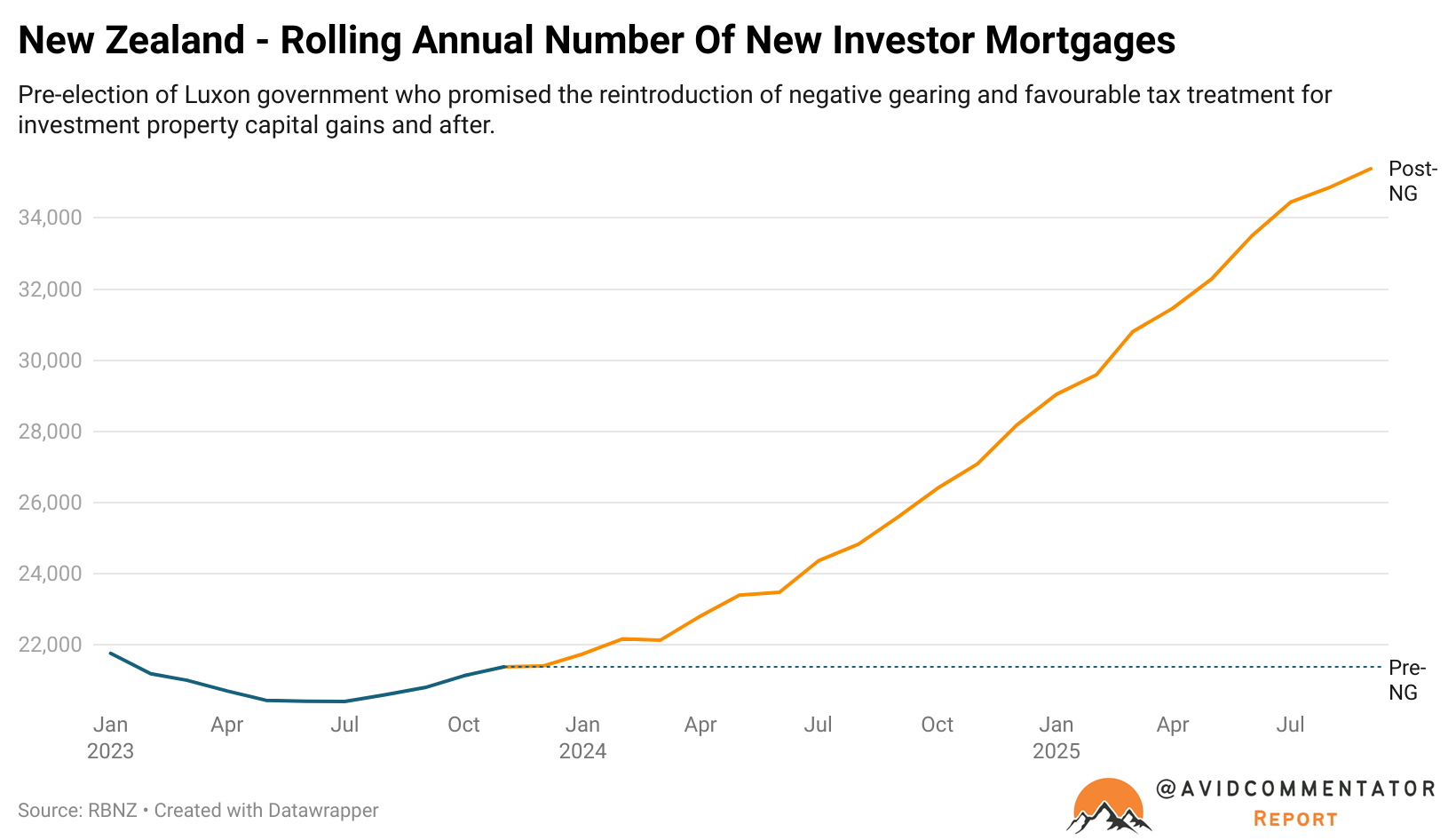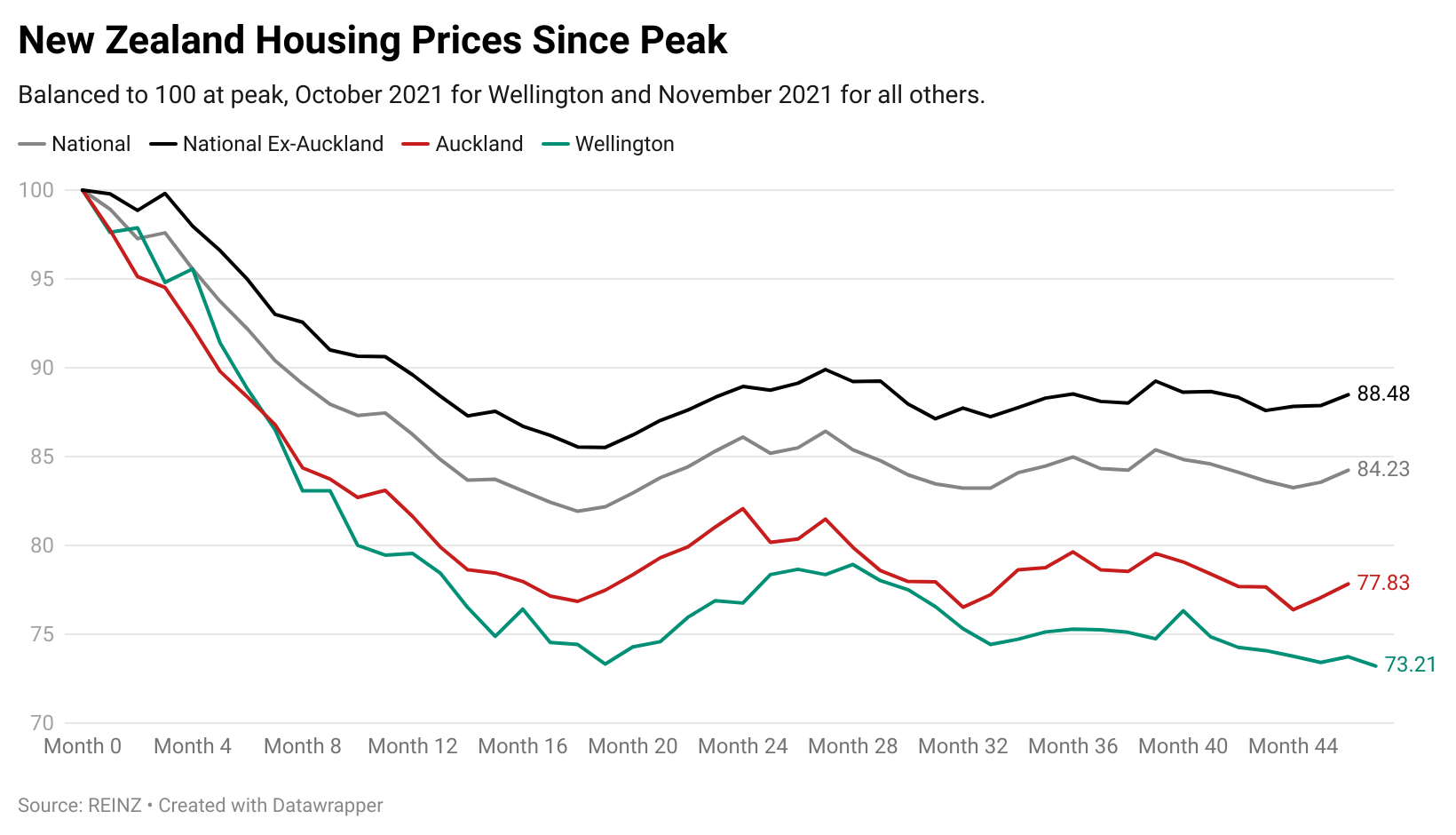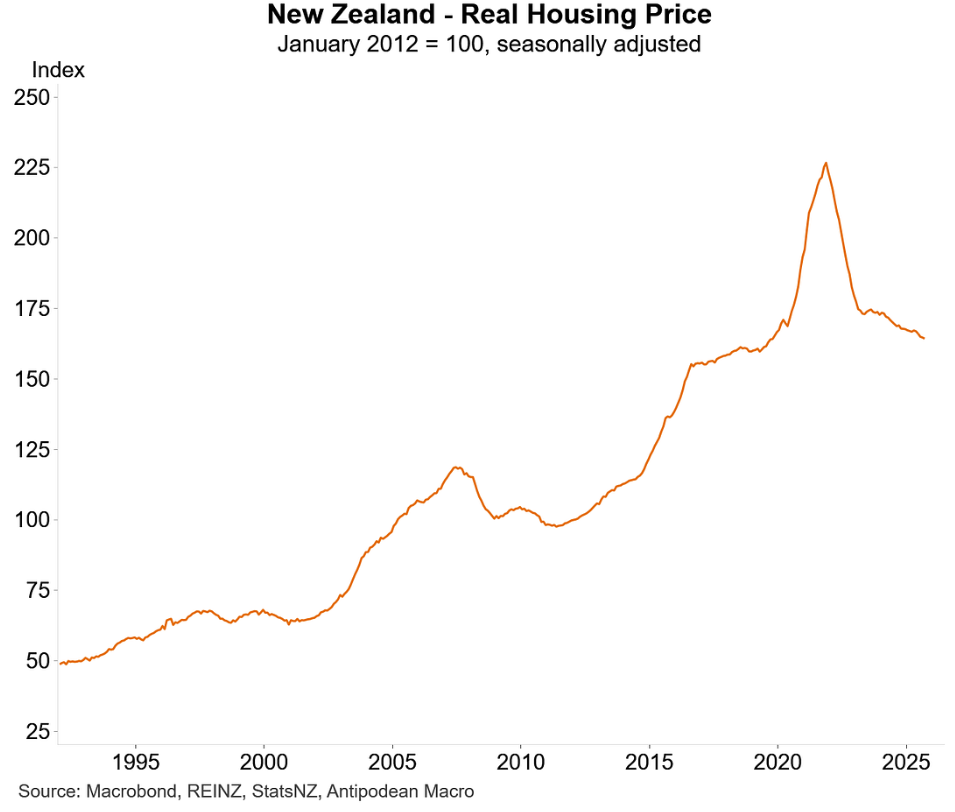When the Luxon government came to power in late 2023, it came with a promise to reinstate negative gearing as it previously was and reduce the holding period required for an investment property to be sold tax-free.
Under the Ardern government, the duration an investor was required to hold a property for the gains to be tax-free increased from 2 years to 5 years in March 2018 and then to 10 years for existing homes in March 2021.
Under the Luxon government, the holding period required to sell a property tax-free was reduced back to 2 years.
Since the Luxon government was elected in November 2023, with a promise to make the aforementioned changes to the tax treatment of property investors, the number of new mortgages flowing to property investors on a rolling annual basis has risen by 14,000 per year, a relative increase of 65.5%.

The share of new investor mortgages flowing to investors has also risen, from 12.8% in November 2023 to 15.2% in the data for September.
The recent peak in the investor share of new mortgages, at 15.9%, was the highest proportion flowing to investors outside of the pandemic-impacted months since mid-2018, before changes to negative gearing and the introduction of a 10-year holding period for a tax-free sale were implemented.
Housing Prices
Meanwhile, Kiwi housing prices have declined since November 2023 across the markets monitored below. However, in more recent times, the trend has been more of the sideways variety, with some ups and downs, but generally within a relatively contained range.
The one exception to this is Wellington, which has recently seen prices hit a new low for the cycle, down by more than the U.S. average during the GFC-era housing crash.

The Kiwi property market is a good example of different forces pulling in very different directions.
On one hand, the economy is weak, migration is falling, unemployment is rising, and the amount of properties on the market is elevated.
On the other hand, investor demand is surging, overall demand for new mortgages is increasing, and housing prices, in inflation-adjusted terms, are not far removed from their pre-pandemic levels.

Chart: Antipodean Macro
The Takeaway
The Kiwi property investor class is well and truly back in the picture and playing a significant role in supporting housing prices.
While their current rising level of participation in the market is being offset by other headwinds for now, in less challenging market times in the future, the upward pressure they exert on demand and, by extension, prices is more likely to drive rising prices at the aggregate level.
While there are certainly other factors at work, there is an argument to be made that negative gearing and property sales tax reform placed significant downward pressure on investor demand.
There are lessons here for other nations currently grappling with similar policies, as well as for New Zealand Housing Minister Chris Bishop, who has repeatedly stated that he wants significantly lower home prices relative to incomes.

